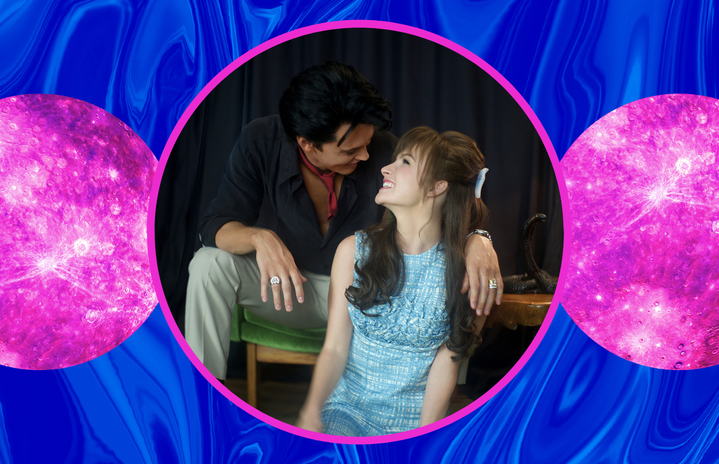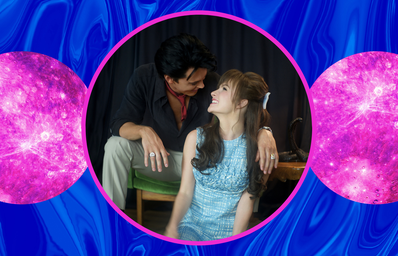After Baz Luhrmann’s 2022 film Elvis, I was keen to see Sophia Coppola’s rival 2023 film Priscilla which tells us the story of Elvis’ wife, Priscilla Presley (who is also the executive director of the film), and their tumultuous relationship.
The film follows Priscilla from her home on a US military base in Germany in 1959 when she was only 14, and was invited to a party where she met Elvis. Despite the 10-year age gap, their relationship developed and survived when he moved back to the USA, but she only got to visit him at certain times. After years of waiting, Priscilla’s parents (misguidedly) allowed Priscilla to move back to the States to live with Elvis in his mansion while she was still completing her education. However, the relationship was not as Priscilla had imagined and she found herself excluded and alone from all company while Elvis was away for long stretches of time. His problematic behaviour was then highlighted in his violently explosive anger and tendency to be unfaithful. What ensued afterwards was the exploration of Priscilla finding herself despite her difficult circumstances. We get to dive deep into her loneliness, something which not often lingers on screen, yet we realise that this is an integral part of her story and we realise that she is worth more. Eventually, some years after the birth of their daughter, Priscilla decides to leave the relationship which is where the film ends leaving a bittersweet taste in the audience’s mouth.
The two main cast members, Cailee Spaeny (in the title role) and Hollywood’s recent favourite Jacob Elordi as Elvis shine in their exceptional performances. Despite being in her mid-twenties Spaeny captures Pricilla’s childhood naivety and seamlessly transitions from an immature child obsessed with her idol to a disillusioned woman leaving an abusive marriage in the space of 113 minutes. Despite being Australian, Elordi pulls off a convincing Southern American accent, distinctive to Elvis, adding to the film’s authentic feel suited to the biopic style. This authenticity is highlighted in the beautiful use of set and costume, realistic to the period, but so lavishly opulent it reminds the audience of this now-passe character’s once musical world dominance and all the status and pressure that came with that placed onto Priscilla.
Who can talk about the life of Priscilla Presley without also commenting on the music throughout? Whilst the use of Elvis’s songs seems fitting and tonally appropriate (though with no real reference to how he stole many songs from Black artists and refused to credit them) where his music is included, it was the music at the end that really haunted me. As Priscilla leaves the mansion for the last time, due to her divorce, she says goodbye to the service staff who had been her only friends for the last decade, gets in her car and drives away. The soundtrack to this painful moment is the original And I Will Always Love You by Dolly Parton, the version before the now long-held Titanic associations. This gives the lyrics a new poignant meaning, as she leaves a partner that she loved because she had to step away due to his abuse, highlighting her complex feelings towards the relationship and tribute to that part of her life in the film.
The film depicts a detailed and sensitive portrayal of grooming, marital abuse and loneliness with a specific nuance not often depicted on screen that is worth a watch if you want to consider these themes and how they played out in relationships of the 1960s and how this related to celebrity culture. I would highly recommend but be prepared for an emotionally shocking viewing experience.
Written By: Stella Russo
Edited By: Adrita Barua


